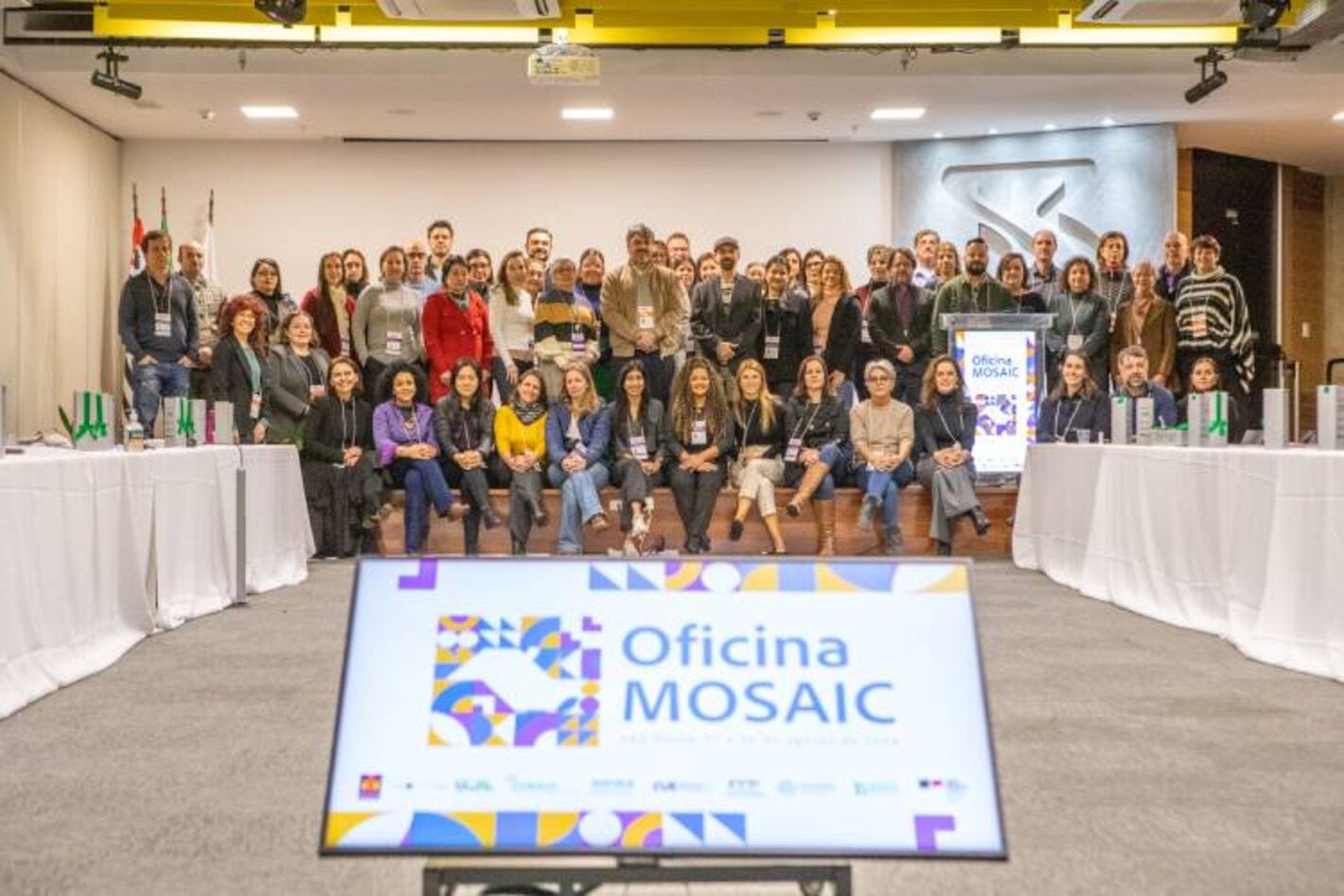
São Paulo, August 9, 2024 (PAHO) – From August 27-to 30, the Mosaic Framework workshop for strengthening respiratory virus surveillance was held in São Paulo, an initiative promoted by the Disease Control Coordination (CCD) of the State Secretariat of Health (SES), in partnership with the Butantan Institute, the Ministry of Health, the National Council of Secretaries of Health (CONASS) and the Pan American Health Organization (PAHO).
The workshop is part of efforts to strengthen surveillance for respiratory viruses such as SARS-CoV-2 and influenza, with a focus on identifying gaps and proposing actions to improve current surveillance approaches. Following the first nationwide workshop in February 2024, this second edition, held at the state level, is part of a series of meetings that will be replicated in the other 25 Brazilian states, the first of which was held in Brasilia.
The event was attended by representatives of the São Paulo Council of Municipal Health Secretaries (COSEMS-SP), CONASS, the Instituto Todos pela Saúde (ITpS), as well as technicians from the organizing institutions, who discussed strategies to improve surveillance systems and ensure better preparedness for health emergencies. During the workshop, strategies for improving surveillance systems to better prepare for and respond to public health emergencies were discussed.
During the four-day workshop, participants addressed the following areas:
- Analysis of approaches and gaps in respiratory virus surveillance: the current situation of surveillance in São Paulo was presented, with dynamics aimed at identifying critical areas and gaps in the detection of emerging viruses. The actions needed to improve surveillance practices were also discussed.
- Comparison of universal and sentinel surveillance: universal and sentinel surveillance systems were discussed, with special attention to the prioritization of measures to strengthen the capacity to respond to public health emergencies. Lessons learned from these approaches were discussed to promote adjustments and improvements in surveillance monitoring and response strategies.
- Contingency planning and risk assessment: seasonal and pandemic contingency plans were discussed using strategic tools such as the Strategic Risk Assessment (STAR). Participants worked on these plans based on previous scenarios, with a view to optimizing response capabilities and increasing preparedness for emerging threats.
- Resilience to Emerging Threats: the PRET (Preparedness and Resilience for Emerging Threats) initiative was presented, focusing on improving preparedness for future viral threats. Implementation challenges were discussed and next steps for strengthening surveillance and contingency management systems were defined.
The workshop concluded with a feedback session in which key actions to strengthen respiratory virus surveillance systems were identified. The lessons learned in São Paulo will provide key inputs for the improvement of future workshops to be held throughout Brazil, contributing to the strengthening of surveillance approaches at the national level.
For more information, visit the WHO Mosaic Framework for Respiratory Virus Surveillance initiative page.



